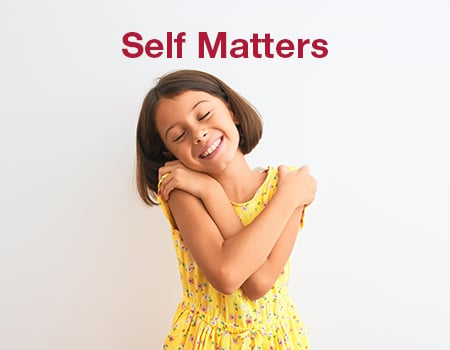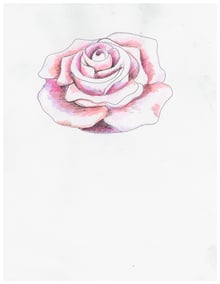Life requires us to make myriad comparisons, and decisions based on them, every day. Most of these judgments help us live our lives with some modicum of comfort, satisfaction, and autonomy. They move us seamlessly through our days and we do not think about them. Because they are so innate and automatic, comparisons can become hurtful. There also are positive, pleasant judgments. Judgment is inevitable, so we cannot be eradicated. it. How we handle it is an expression of our conflict with this universal human phenomenon.
What is Judgment?
Judgment is a subjective interpretation of a person, experience, or object, and imposing onto the situation a label to define it in your terms, usually without context or evidence. You may cite innumerable “reasons” for your criticism—“His mismatched socks look stupid,” “A designer bag? She must make a lot of money,” “The speed limit is thirty-five. Why are crawling along at twenty?” A quote attributed to many people, including “Anonymous,” “Unknown,” and no citation at all is “We judge ourselves by our intentions, we judge others by their behavior.” Using these examples, what if the man with mismatched socks has a quirky and fun personality and likes mixing up his eclectic wardrobe, or what if he is wearing the only socks he owns? What if the wealthy-looking woman is living on a low income but knows how to shop for bargains or receives gifts from people who care about her? What if the slow driver is lost or ill and looking for a place to pull over to call for help? Without these additional pieces of information, your mind makes up all kinds of stories about the people—all of them false.
I have adopted this mantra: Whenever I attempt to determine what someone else is thinking or feeling, I am wrong 100% of the time. It has yet to fail.
When you congratulate someone for an achievement or their hairstyle or how kind they are to others, you pass a judgment. This time the judgments are affirming. Whether you perceive a situation as good or as bad, you make a judgment. Situations and circumstances have no meaning in and of themselves. They require human interpretation. For instance: When a family at the mall was asked about the good news in the family, the kids grinned and said, “School’s out next week.” The friend then asked if there was any bad news in the family, to which the mom said, with a heavy sigh, “School’s out next week.” Clearly a difference in perspective.
Where Does Judgment Come From?
Expectations, fulfilled or unfulfilled, lead to judgments…always. They are quite possibly the number one source of judgments. When you cling to a specific outcome without considering other possibilities, you set yourself up for disappointment. In my article, Hold Onto Your Dream By Loosening Your Grip, I cover planning for contingencies in more depth. Another source of judgment could be your past or present relationships have been with people who were judgmental and who judged you with difficult expectations and harsh words. So, you became conditioned to do the same. There are many other places that promote judgment.
What Happens When You Judge?
Judgment, by organic design, makes you feel less than, more than, or neutral.
Comparing yourself or circumstances to others is a lose-lose exercise. You either deem yourself as better than others and feel superior or less than others and inferior. Less than can feed a low sense of self-worth, shame, and a deflated and inaccurate image of self. At its most detrimental, it can lead to depression, anger, frustration, self-sacrificing to keep others happy, and loss of dignity and self-respect, plus physical illnesses, and diseases.
More than may result from one of two states of mind. Either an inflated sense of self-worth, which shows up as arrogance; insensitivity; attitude of entitlement, unrealistic expectations of self or others, unfair treatment of others, and failure to take responsibility for one’s actions or lack thereof. Or the mindset may be a smoke screen for feeling less than and taking it out on other people. The desire here is to feel better by making others feel worse, but the feeling is elusive and fleeting. You then get caught in an endless loop of noticing you feel worse, so you hurl an insult or make a silent judgment about others to feel better, then start over again. Whether with the same person, or with different people, such as people watching at the mall, the attempt is to avoid feeling less than.
When your feelings are neutral, you are relaxed, content, serene, comfortable, satisfied, confident, empowered, and compassionate towards yourself and others. You do not stop striving to be your best self and live your best life, but you do not do so at the expense of others. This state is where you want to spend most of your time. You no longer expend energy on pin-balling between less than/more than. You give others space to be their best selves and live their best lives rather than spending your life in disappointment because they did not meet your expectation.
Each person is the center of her/his own universe, but only theirs. You are the center of your universe but only yours. When you judge others, you attempt to place yourself in the center of someone else’s universe. The result is taking away their right to make their own decisions and self-expression. Other people make decisions about their lives, just as you do about yours. While disagreement is always a factor, it does not have to run your life and your relationships. It is okay to like something someone else finds inappropriate, like cargo shorts and a light jacket when temperatures drop to single digits. It is okay to like tarantulas for pets. It is okay to like blue cars rather than gray SUVs. Your choices tell others about your personality, your mood, or even your lifestyle.
So, What Do We Do About Judging?
First, grab your journal (Your BFF) and your favorite writing instruments.
- Make a list of the negative judgments you use.
- Read the list.
- Use a highlighter or some other method to identify your most troublesome judgments.
- Challenge them:
- Who said so?
- Are the judgments true or false?
- Write the reality in one sentence.
- If it is true, how did/do they harm you, your life, or people you care about?
- Write the challenges to your judgments on index cards, one per card.
- Rewrite the challenge as a mantra—see my article, The Ultimate Guide to Intentions, Affirmations, and Mantras. February 2021.
- Write notes underneath the mantra, a sort of mini journaling exercise. Feel free to embellish with colored ink, crayons, colored pencils, and scrapbooking supplies.
- Read the card in its entirety several times daily, preferably out loud. You may want to record the mantras on your phone or tablet to make them more portable.
And on We Go
Judgment is an inevitable necessity of life, helping you feeling secure and relatively happy. Learn to make it work for you. Ease up on yourself and others. Most people are doing the best they can at the time. Consider your and their position and any environmental elements and give everyone a nod of gratitude for trying. Lighten up. Is the situation really that important? Are you judging someone for a point about them that has nothing to do with you? Does their behavior profoundly affect your life or the lives of people you care about? And, yes, some situations involve grave, hurtful, harmful, or even deadly potential. Appropriate judgment may soothe a volatile situation. Professional intervention may be necessary. Wise use of your judgment will help you live with more energy, joy, and peace.
Be kind. Be gentle. Be gracious. Be safe, always.

Billie Wade, a lifelong journaler, believes people are precious, sacred, resilient, and stronger than they know. She created Journaling to Heal, LLC which helps people discover the power of writing in their process of recovery from emotional stress and trauma. Visit her at www.billiewade.com and find more of her writing on www.dmpcc.org/billie where she writes a monthly newsletter column for Des Moines Pastoral Counseling Center.




Leave Comment